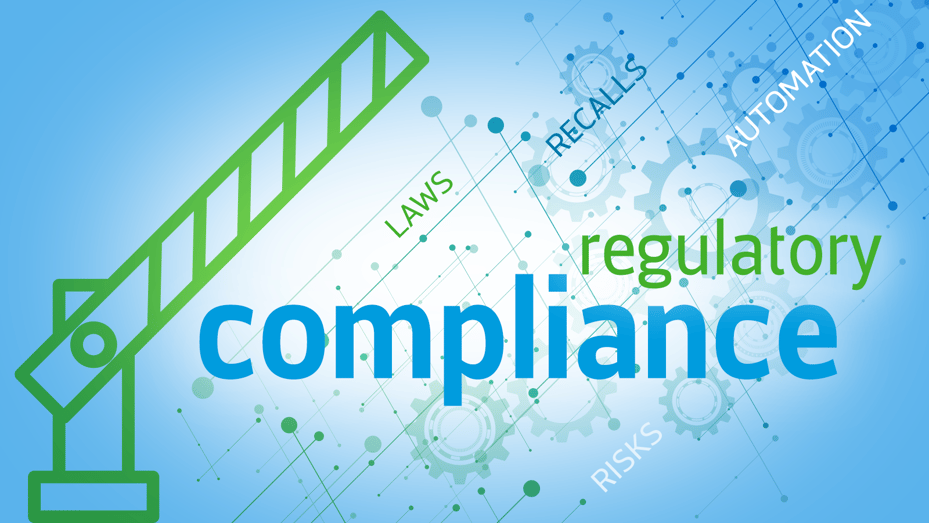
Regulatory Compliance in a Modern World
|
Product Lifecycle Management
|
Food & Beverage
Posted By:
Trace One
Before a product is marketed and made available to consumers, it will have to first be evaluated by regulatory affairs.
The role may vary from company to company, but product compliance to regulations is a critical guardrail for protecting consumers and organizations. For an industry like food and beverage manufacturing, that includes verifying product development, like a recipe's compliance, but also labelling, communications, and advertisements. Everyone in a company is responsible for compliance, but Regulatory Affairs maintains ownership of communicating regulatory standards and serves as a major checkpoint before anything goes out the door.
Ensuring company brands get the best regulatory guidance possible is not easy. Regulatory Affairs will sometimes have to assess the risk of a claim. When you cannot fully determine compliance due to regulatory uncertainty, you must evaluate the factors and outcomes. With this information, you support decision makers, allowing them to make informed choices that are best for the company and its consumers.
It all starts with informed decisions
Product and marketing decisions made within the organization need to be compared with guidelines provided by regional authorities. Sign-off sometimes requires evaluating conflicting priorities, being aware of consumer expectations, and being able to interpret and apply regulations correctly. Thorough and efficient compliance keeps everyone safe.
You’re not always going to be 100% certain. Sometimes circumstances and answers aren’t always clear, and there are definite gray areas. Further complicating things, different standards exist across different regions. What might be appropriate for the EU will have different regulations in Asia or North America. This only adds to the complexity of the role.
Making informed decisions begins with proactive comprehension. Staying abreast of the latest regulations and industry practices is critical. Successful compliance to regulations requires attention to detail and an ability to absorb, analyze, and apply guidance from regulators and engage with industry bodies, academia, national and international organizations, and NGOs. Proactive comprehension also means staying alert to current laws, emerging risks, recalls, and industry trends. Knowing what a consumer expects from a product claim informs how regulators in a region will establish their regulatory framework.Regulatory affairs should leverage guidance tools to advise conclusions. This includes decision trees and other verification processes to support compliance. All data and information used to assess and validate a claim should be documented and tracked. Not only does this facilitate decision making, but proper documentation is also important for compliance audits.
Compliance is held together by strong relationships
In order to keep consumers and companies safe, regulatory affairs must monitor and engage with several internal and external systems. Internally, this includes early and persistent involvement with process owners in marketing, innovation, and R&D. Guidance from external groups should influence how regulatory affairs proceeds with internal compliance efforts.
This effort also includes training internal teams with industry best practices, disseminating changes to regulatory guidelines, and creating systems of oversight to assure adherence.
Successful compliance involves regularly observing and participating in decisions made inside and outside of your organization.
Getting things done without compromising oversight
It’s not uncommon for Regulatory Affairs to experience delays in sign off. Nor is it unheard of for Regulatory Affairs to feel pressured to verify a claim. It will always be more important to make the right decision over a hasty one.
The worst possible scenario for a new product is to lose several years of development because of a major compliance issue that could have been resolved with an early intervention. This occurs when Regulatory Affairs waits too long to engage.
In most cases, guidance and sign-off cannot occur until everything has been delivered to Regulatory Affairs. Gaining stakeholder participation early ensures that compliance has been adhered to from the start, speeding up the process for everyone. Frequent follow-ups means that regulatory affairs is always proactively involved in product development, labelling, marketing, and any consumer-facing claim.
Automating compliance assessments can speed up this process significantly. Not only is automation a time saver, it simplifies the process, improving the accuracy of assessments. Technology can help remove a lot of gray areas, like navigating current regulations across numerous regulatory bodies. All of this adds up to thorough and expedited oversight without compromise.
Trace One's Trace One Regulatory Compliance, a web-based regulatory platform, allows users to access one structured regulatory database to manage ongoing compliance checks, monitor changing food laws, and ensure products remain compliant and competitive in every market. The Trace One Regulatory Compliance is an easy-to-adopt subscription-based tool with no hardware. It is accessible from everywhere.
Compliance early and often
Good regulatory compliance means everyone in the organization, not just Regulatory Affairs, will have the tools, information, and confidence to make the right decisions. Compliance shouldn’t be an end step; it should occur early and often. Using technology like Trace One's Trace One Regulatory Compliance helps you to stay current, efficient, and engaged.
If you’re interested in learning more, Trace One has 8 rules for strong regulatory compliance strategies.